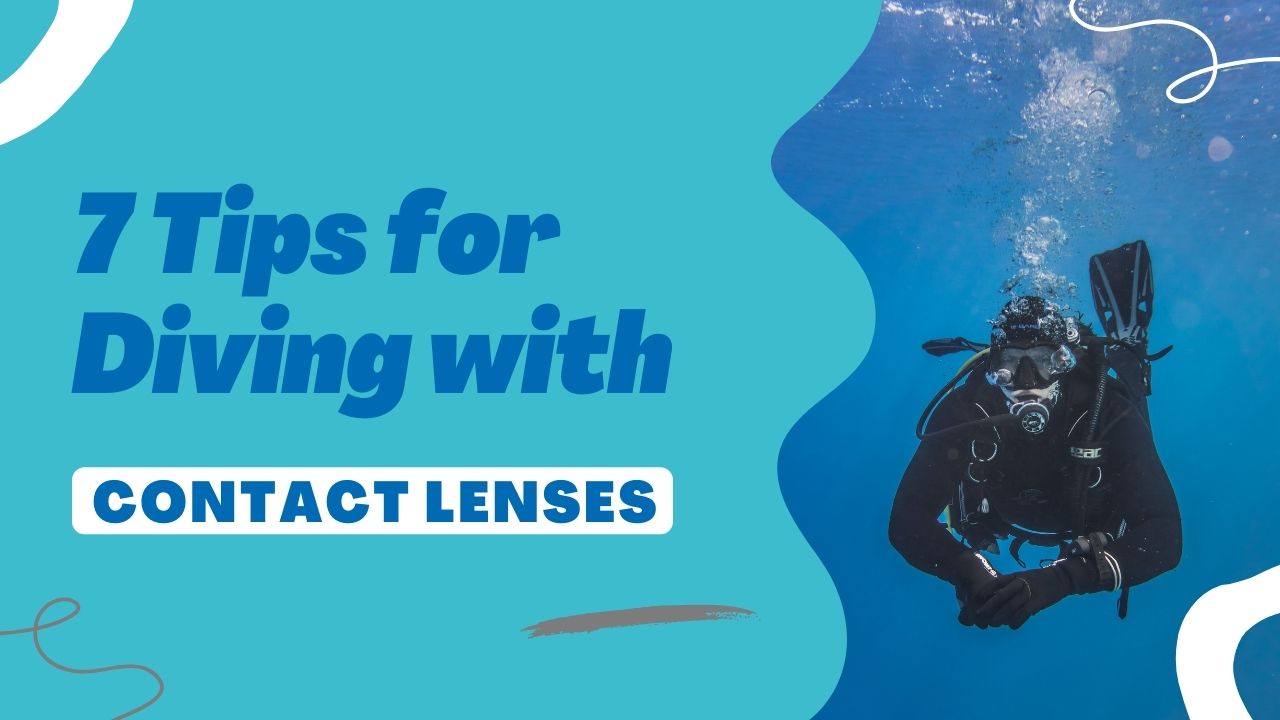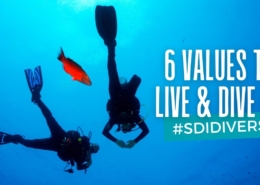7 Tips For Diving with Contact Lenses
“Can I wear contact lenses while scuba diving?”
“Is it safe?”
These are just a couple of questions that scuba divers who have vision problems ask. The answer is:
Yes. It’s safe as long as you follow certain guidelines and safety protocols. In this post, we discuss the things you need to do to ensure that you have a safe and enjoyable dive. Without further ado, here are seven safety tips for diving with contact lenses.
-
Find the right mask.
Before you can even consider wearing contact lenses while diving, you must ensure that your dive mask fits you perfectly. Wearing a properly fitted mask prevents seawater from flooding your mask and contaminating your contact lenses. With the right mask, you’ll be able to protect your eyes from nasty infections.
Make sure that you purchase your mask from a dive shop. Dive shops not only have a wide selection of masks available, but they also have personnel that will help you choose the best possible mask. Find your local dive shop by clicking here.
-
Wear soft contact lenses when diving.
There are different types of contact lenses, but not all of them are created equal when it comes to diving. There are rigid gas-permeable (hard) contact lenses and there are soft contact lenses. For diving, you should always wear soft contact lenses.
Hard contact lenses are gas-permeable, which means they allow gas to pass through your eye. With hard contact lenses, nitrogen bubbles can form between your lenses and your eyes, causing blurry vision, discomfort, and even eye pain.
Since soft contact lenses are not gas-permeable, there’s no risk of nitrogen bubbles forming between your lenses and your eyes. You can comfortably wear soft contact lenses while diving, which is why they’re the best and only choice for diving with contact lenses.
-
Bring spare contact lenses.
Always bring spare contact lenses when going on a dive. The last thing you want to happen is to lose a contact lens before you even start your dive session. Bringing spare contact lenses also allows you to continue diving if you need to ascend because you need to remove your contact lenses due to discomfort, pain, or water contamination.
-
Wear daily disposable contact lenses.
Consider wearing daily disposable contact lenses (dailies) when diving. Dailies are one of the safest and most cost-effective options for diving. To avoid the risk of infection, you should always remove and dispose of your contact lenses after a dive. With dailies, you can dispose of your contact lenses and wear fresh ones after your dive.
-
Disinfect your hands before handling your contact lenses.
Disinfecting your hands before handling contact lenses is one of the most important contact lens care and safety protocols you should remember. Never touch your eyes and handle your contact lenses immediately after ascending and getting out of the water. The bacteria present in seawater can transfer to your fingers and latch onto your contact lenses, which can cause potentially serious infections.
Seawater also contains acanthamoeba, a single-celled microorganism that is present in tap water, freshwater (rivers and lakes), and seawater. Acanthamoeba can cause acanthamoeba keratitis, a serious eye infection that can result in permanent visual impairment or blindness.
To prevent contaminating your contact lenses and getting an eye infection, disinfect your hands before handling your contact lenses. Soap and a clean water source may not be readily available in the open water, so always bring rubbing alcohol or disinfecting wipes with you.
-
Inform your dive buddy.
Inform your dive buddy that you are wearing contact lenses before descending. You obviously can’t talk underwater and informing your dive buddy of your situation beforehand prevents confusion in the event you make signals and point to your eye.
If your dive buddy knows that you are wearing contact lenses, they’ll be better equipped to handle the situation and help you if you lose your vision underwater.
-
Close your eyes during mask skills
Scuba diving instructors will teach learners several mask skills such as mask clearing, and flooding. There’s always the possibility that your mask will flood with water, so you must know how to carefully remove the water without contaminating your lenses.
Your instructor will ask you how to flood your mask on purpose and then show you how to clear the water from your mask. If you are wearing contact lenses, flooding your mask will cause water to come into contact with your lenses. To avoid this, close your eyes during mask flooding. It’s also a good idea to inform your instructor that you are wearing contact lenses so that they can tailor the course to your specific needs.
Conclusion
By following the tips in this post, you can wear contact lenses while diving without having to worry about things like contact lens contamination or eye infections. As long as you keep these tips in mind every time you dive, you’ll have a safe and enjoyable dive.









Dodaj komentarz
Chcesz się przyłączyć do dyskusji?Feel free to contribute!